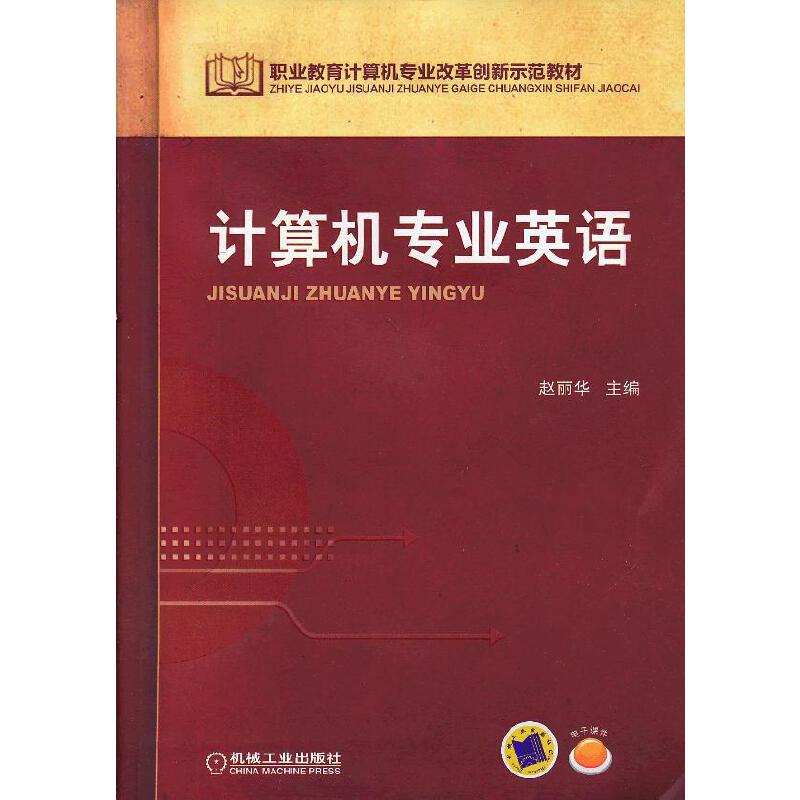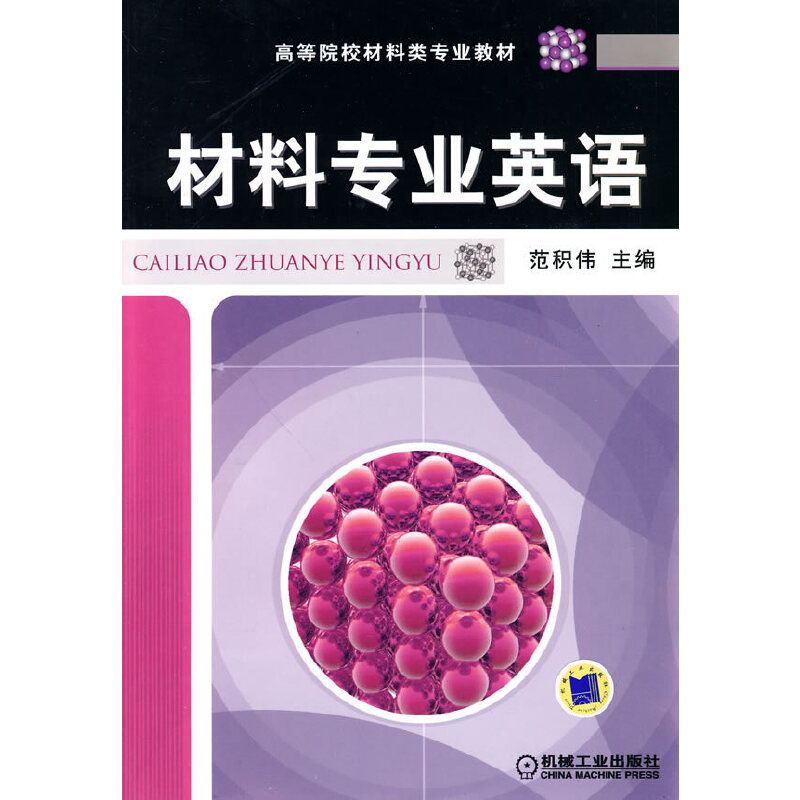计算机专业英语(第三版) / 高等职业教育十三五精品规划教材
作者: 孙建忠、白凤仙主编
出版时间:2016年9月
出版社:中国水利水电出版社
- 中国水利水电出版社
- 9787517046608
- 156911
- 0065170984-2
- 2016年9月
- TP3
- 语言、文字
- 高职高专
本书所选材料语言规范、内容新颖、完整实用。每一章均包括:学习指导与小结、课文、注释与译文、阅读材料、练习与专业英语专题等内容。专业英语专题包括计算机词汇及其构成规律、科技英语的阅读与翻译技巧、科技论文及其摘要的写作、商业书信以及日常求职英语等必备知识。
本书可作为高职高专计算机专业的专业英语教材,也可作为使用计算机的广大科技工作者的参考书。
第三版前言
Chapter 1 The History and Future of Computers
学习指导
1.1 The Invention ofthe Computer
1.1.1 The ENIAC
1.1.2 The UNIVAC
1.2 Computer Generations
1.2.1 First-Generation Computers:1951-1958
1.2.2 Second—Generation Computers:1959-1963
1.2.3 Third—Generation Computers:1964-1970
1.2.4 Fourth—Generation Computers:1971~?
1.2.5 Generationless Computers
Reading Material:Classes of Computing
Applications and Their Characteristics
科技英语的特点
Exercises
Chapter 2 Basic Organization of Computers
学习指导
2.1 Introduction
2.2 SystemBuses
2.3 Instruction Cycle
2.4 CPUORGANIZATl0N
Reading Material:Eight Great Ideas in Computer
Architecture
计算机英语专业词汇的构成
Exercises
Chapter3 Binary System and Boolean Algebra
学习指导
3.1 TheDecimal System
3.2 The Binary System
3.3 Boolean Algebra
数学公式的读法(Pronunciation ofmathematical expressions)
Exercisest
Chapter 4 Elementary Data Structures
学习指导
4.1 Stacks andqueues
4.1.1 Stacks
4.1.2 Queues
4.2 Linked lists
4.2.1 Searching alinkedlist
4.2.2 Inserting into a linked list
4.2.3 Deleting from a linked list
4.2.4 Sentinels
Reading Material:Related Concepts:
常用英汉互译技巧
Exercises
Chapter 5 Operating System
学习指导
5.1 0S Functionsz
5.1.1 Resource allocation and related functions
5.1.2 User interface related functionsq
5.2 FreeBSD VS.Linux VS.Windows 2000
Reading Material:RATs
被动语态的译法
Exercises
Chapter 6 Software Engineering
学习指导
6.1 Basic Software Concepts5
6.1.1 Application Software5
6.1.2 System Software5
6.2 The Software Lite Cycle
6.2.1 System engineering and analysis
6.2.2 Software requirements analysis
6.2.3 Design
6.2 4 Coding
6.2.5 Testing
6.2.6 Maintenance
6.3 Prototyping
Reading Material:Software Engineering
Methodologies
长定语(从句)的翻译技巧之一
Exercises
Chapter 7 Programming Language
本章学习指导
7.1 Introduction to Programming Language
7.2 Object—oriented Programming
7.3 OMGS Unified Modeling Language(UML)
Reading Material:Programming Paradigms
长定语(从句)的翻译技巧之二
Exercises
Chapter8 The Internet
学习指导
8.1 The Internet:Key Technology Concepts。
8.2 Other Intemet Protocols and Utility Programs
8.3 Internet Service Providers
Reading Material:Transition from IPv4 to IPv6
英语长句的翻译
Exercises
Chapter9 TheWorldWideWeb
学习指导
9.1 Hypertext
9.2 Markup Languages
9 3 Web Servers and Clientst
94 WebBrowsers
Reading Material:Features ofThe Intemet and The Web
学术论文的英文写作简介
Exercises
Chapter 10 Network Security
学习指导
10.1 Secure Networks and Policies
10.2 Aspects of Security
10.3 Responsibility and Control
10.4 Integrity Mechanism
10.5 Access Control and Passwords
10.6 Encryption and Privacy
10.7 Public Encryption
10.8 Authentication wim Digital Signatures
10 9 Packet Filtering
10.10 Internet Firewall Concept
Reading Material:KINDS OF SECURITY
BREACHES
科技论文标题的写法
Exercises
Chapter 11 Database System
学习指导
11.1 Overview
11.2 Database Models
11.2.1 Flat File
11.2.2 Relational
11.2.3 Hierarchical
11.2.4 0merDatabaseModels。
11.3 DataMining
英文论文引言的写作技巧
Exercisest
Chapter 1 2 Multimedia and Compuer
Animations
学习指导
12.1 Multimedia
12.1.1 visual Elements
12.1.2 SoundElements
12.1.3 Organizational Elements
12.1.4 MultimediaApplications。
12.2 ComputerAnimation。
12.2.1 Design ofAnimation Sequences
12.2.2 General Computer-Animation
Functionst
英文摘要的写作技巧
Exercises
Chapter 13 Anatomy of the Internet of Things
学习指导
13.1 Traditional Internet Protocols Arent the SolutionforMuch of the IoT。
13.1.1 Introducingthe“Chirp”
13.1.2 Functionality the IoT Needs and Doesnt
13.1.3 Efficiency Out ofRedundancy
13.2 It SA
















